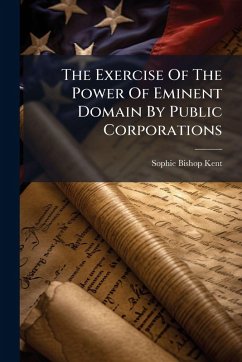The Exercise Of The Power Of Eminent Domain By Public Corporations delves into the legal intricacies surrounding the use of eminent domain by public entities. This study provides a detailed examination of the constitutional and statutory frameworks that govern the process by which public corporations can acquire private property for public use. Sophie Bishop Kent explores the limitations and safeguards in place to protect property owners, offering insights into landmark cases and legal precedents that have shaped the interpretation of eminent domain laws. This book is an invaluable resource for legal professionals, policymakers, and anyone interested in understanding the balance between public interest and individual property rights. Its thorough analysis makes it a crucial addition to the libraries of those studying constitutional law and municipal governance. This work has been selected by scholars as being culturally important, and is part of the knowledge base of civilization as we know it. This work was reproduced from the original artifact, and remains as true to the original work as possible. Therefore, you will see the original copyright references, library stamps (as most of these works have been housed in our most important libraries around the world), and other notations in the work. This work is in the public domain in the United States of America, and possibly other nations. Within the United States, you may freely copy and distribute this work, as no entity (individual or corporate) has a copyright on the body of the work. As a reproduction of a historical artifact, this work may contain missing or blurred pages, poor pictures, errant marks, etc. Scholars believe, and we concur, that this work is important enough to be preserved, reproduced, and made generally available to the public. We appreciate your support of the preservation process, and thank you for being an important part of keeping this knowledge alive and relevant.
Bitte wählen Sie Ihr Anliegen aus.
Rechnungen
Retourenschein anfordern
Bestellstatus
Storno

